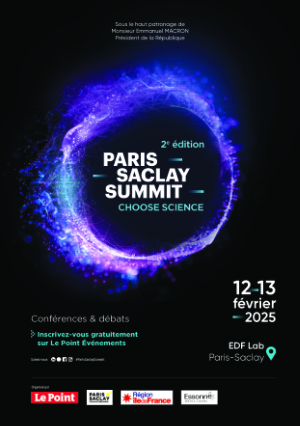Scalable single-module battery for on-road heavy-duty electrified vehicles
| ABG-126398 | Master internship | 6 months | 670 € |
| 2024-10-22 |
- Engineering sciences
- Energy
Employer organisation
Website :
The L2EP (Laboratory of Electrical Engineering and Power Electronics, ULR 2697, https://l2ep.univ-lille.fr) has about 100 researchers (including 36 Professors and 42 PhD students) in the field of innovative electrical systems. Its control team is internationally recognized for the energy management of various electrified vehicles. Since 1990, the control team of L2EP has developed various generic method, such as the EMR graphical formalism. EMR is nowadays internationally taught and annual EMR summer school is organized every year (www.emrwebsite.org). A scientific platform of 150 m2 is dedicated to validate new electrified vehicle concepts, from subsystems to vehicles, for more efficient and less pollutant transportation systems. The platform is organized in five workspaces, including the electrical storage workspace.
The Ampère Laboratory (CNRS UMR 5005, http://www.ampere-lab.fr) has been working for 30 years in the field of energy storage systems: batteries, supercapacitors and capacitors. The main skills developed concern electrical, electrochemical, electro-thermal characterization and modelling, as well as sustainable development aspects, management optimization and eco-design. An experimental characterization and reliability platform is dedicated to energy storage systems comprising a plurality of characterization and aging benches.
Description
Unlike for new on-road light-duty vehicles, for which mandatory carbon dioxide (CO2) emissions standards have been in place in the European Union (EU) for a decade, the CO2 emissions standards for new on-road Heavy-Duty Vehicles (HDV) were only adopted in 2019. This delay is particularly due to more stringent requirements, to substitute the diesel engine-based HDV, in terms of lifetime, driving range or refueling time. Today, a fast deployment of new types of on-road HDV to reduce the ecological footprint of transportation is then required. To tackle this, the EU aims to deploy zero-emission vehicles using battery or hydrogen fuel cell. In order to expect a rapid growth of these vehicles the trend is to develop scalable and modular platforms. Applied to the power supplies, the modular and scalable platforms result to use multi-module batteries and multi-stack fuel cells. For this purpose, MARSHALL (ModulAR and Scalable battery and fuel cell systems for on-road HeAvy-duty eLectrified vehicLes) is a new project, funded by the French National Research Agency (ANR), within the framework of the French national network MEGEVH on the electrified vehicles, between three labs; Ampère, FEMTO-ST and L2EP; to develop a generic methodology for the design of multi-module batteries and multi-stack fuel cells applied to on-road HDV. The ambition of the project is to accelerate the system architecture design process of the battery and fuel cell systems by at least 20%, thereby reducing the time-to-market of battery and fuel cell HDV.
The master thesis aims to develop scalable single-module battery according to the generic method of MARSHALL. The scaling laws will be developed for relevant properties, such as losses, as well as component parameters, such as thermal resistance. This will be done by using Energetic Macroscopic Representation (EMR) formalism to develop innovative scaling laws that allow to up- or down-size reference components, making it needless to redo time consuming design steps. The organization will consist of keeping the model and the representation of a reference component, but complemented with two power adaptation elements. The difficulty relies on the embedding of the scaling factors in power adaptation elements and scale only the input and output properties of the reference model. Several steps will be achieved to reach this objective.
More details: see the internship proposal at https://l2ep.univ-lille.fr/formation/sujets-de-master-e2d2/
Host organization: Laboratory of Electrical Engineering and Power Electronics (L2EP)
Internship location(s): L2EP, University of Lille, Villeneuve d’Ascq, France AND Ampère laboratory, Claude Bernard University Lyon 1, Villeurbanne, France
Funding: French National Research Agency (ANR)
Possibility for a PhD thesis afterwards: Yes
Profile
2nd year master’s student (or equivalent) with a specialization in electrical engineering with knowledge in batteries and electrified vehicles. A command of the EMR graphical formalism would also be appreciated. English writing capacities.
Starting date
Vous avez déjà un compte ?
Nouvel utilisateur ?
Get ABG’s monthly newsletters including news, job offers, grants & fellowships and a selection of relevant events…
Discover our members
 PhDOOC
PhDOOC  ONERA - The French Aerospace Lab
ONERA - The French Aerospace Lab  CASDEN
CASDEN  Ifremer
Ifremer  Généthon
Généthon  ANRT
ANRT  SUEZ
SUEZ  Groupe AFNOR - Association française de normalisation
Groupe AFNOR - Association française de normalisation  ADEME
ADEME  CESI
CESI  MabDesign
MabDesign  Institut Sup'biotech de Paris
Institut Sup'biotech de Paris  Institut de Radioprotection et de Sureté Nucléaire - IRSN - Siège
Institut de Radioprotection et de Sureté Nucléaire - IRSN - Siège  TotalEnergies
TotalEnergies  MabDesign
MabDesign  Laboratoire National de Métrologie et d'Essais - LNE
Laboratoire National de Métrologie et d'Essais - LNE  Aérocentre, Pôle d'excellence régional
Aérocentre, Pôle d'excellence régional  Nokia Bell Labs France
Nokia Bell Labs France  Tecknowmetrix
Tecknowmetrix




